Nigeria Health Watch’s 10th Future of Health Conference under the theme: “From Evidence to Action: Building Resilience at the Climate-Health Nexus,” focused on the intersection of climate change and public health, emphasizing the urgent need for actionable policies to mitigate the health impacts of climate change.
The twenty-eighth Conference of the Parties (COP28) of the UN Framework Convention on Climate Change (UNFCCC) in Dubai was historic because it elevated health in climate diplomacy, which has been ignored by previous conferences. The COP28 UAE Declaration on Climate and Health underscores the “grave concern about the negative impacts of climate change on health.”
The Declaration recognized the urgency of taking action on climate change and the benefits for health from deep, rapid, and sustained reductions in greenhouse gas emissions, including lower air pollution, active mobility, and shifts to sustainable healthy diets. Among others, the Declaration commits to strengthening the development and implementation of policies that maximize the health gains from mitigation and adaptation actions and preventing worsening health impacts from climate change.
READ ALSO: NEDC reaffirms commitment to climate resilience at management retreat
The Declaration recognized the urgency of taking action on climate change and the benefits for health from deep, rapid, and sustained reductions in greenhouse gas emissions, including lower air pollution, active mobility, and shifts to sustainable healthy diets. Among others, the Declaration commits to strengthening the development and implementation of policies that maximize the health gains from mitigation and adaptation actions and preventing worsening health impacts from climate change.
In Nigeria, a significant health crisis is being exacerbated by climate change, which has been linked to an increase in diseases and food insecurity. For instance, the World Health Organization (WHO) reports that climate change worsens health issues through rising temperatures and extreme weather, leading to a higher burden of communicable diseases and malnutrition.
Moreover, 30% of Nigeria’s population experiences food insecurity due to climate-induced disruptions in agriculture, impacting more than 6.7 million children who suffer from malnutrition. Additionally, diseases like malaria are rising, with over 60 million cases reported annually, partly due to floods that create breeding grounds for mosquitoes. Heatwaves have also become more frequent, contributing to heat-related illnesses and thousands of potential deaths if mitigation efforts are not pursued.
Likewise, the climate-health nexus is increasingly evident in how rising temperatures and shifting weather patterns exacerbate existing vulnerabilities, leading to the spread of infectious diseases and food and water insecurity. Against this backdrop, the 2024 Nigeria Health Watch’s 10th Future of Health Conference (FHC) themed “From Evidence to Action: Building Resilience at the Climate-Health Nexus,” was held last week in Abuja, Nigeria.
The milestone conference spotlighted the vital link between climate change and health, calling for decisive and evidence-based policies to curb climate-related health risks and strengthen resilience within communities across Nigeria and beyond. The well-attended conference called for decisive, evidence-based policies to curb climate-related health risks and strengthen resilience to climate-induced health challenges within communities across Nigeria and beyond.
The 10th FHC convened a diverse group of health professionals, policymakers, and environmental advocates who addressed the critical intersection of climate change and health. It was organized in collaboration with several partners, including the Society for Family Health (SFH), Pathfinder International, the World Bank, MSD for Mothers, and the Clinton Health Access Initiative. Others were the DRASA Health Trust, Resolve to Save Lives, and the Bill and Melinda Gates Foundation.
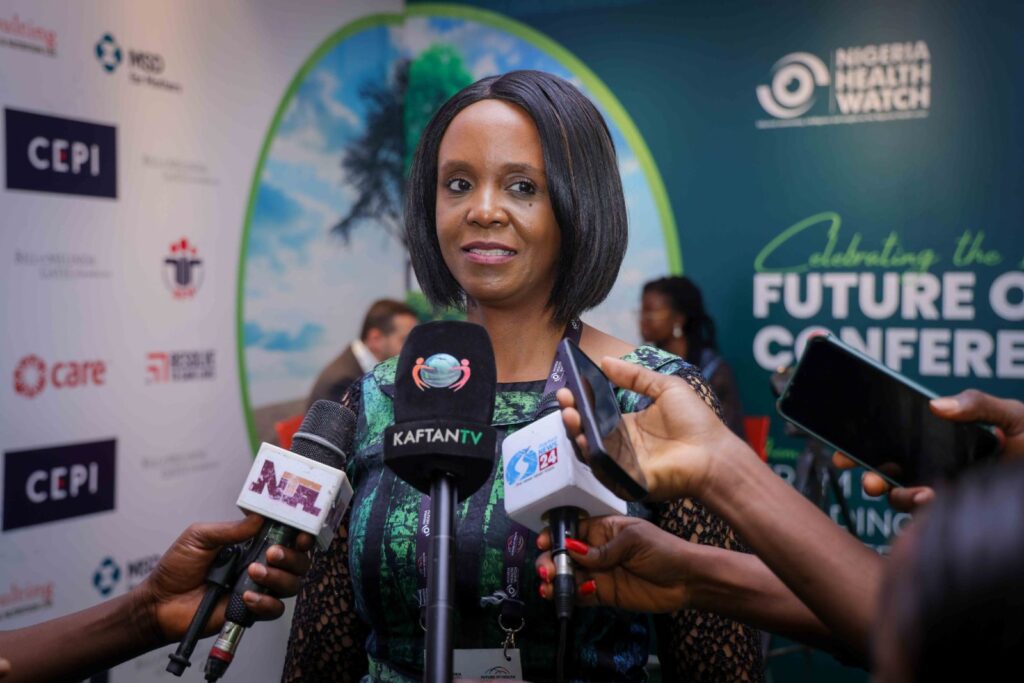
“Recent Health Crises Emphasize Climate-health Nexus” – Nigeria Health Watch MD
While opening the 10th Future of Health Conference, Managing Director of Nigeria Health Watch, Vivianne Ihekweazu described this year’s theme i.e. From Evidence to Action: Building Resilience at the Climate-Health Nexus, as one that could not have been more relevant. She decried the fact that while climate change is undeniable, misconceptions about it persist and emphasized the urgency of addressing climate change’s impact on health in Nigeria.
Ihekweazu stressed the fact that climate change has transformed the fundamental aspects of everyday life, from air quality to food security, intensifying health risks and underscored the fact that some still view climate change as a natural or even divine event, which, she warned, could hinder the necessary actions to protect vulnerable communities. “We have entered an era where climate shocks are disturbingly predictable,” she remarked, calling for proactive responses.
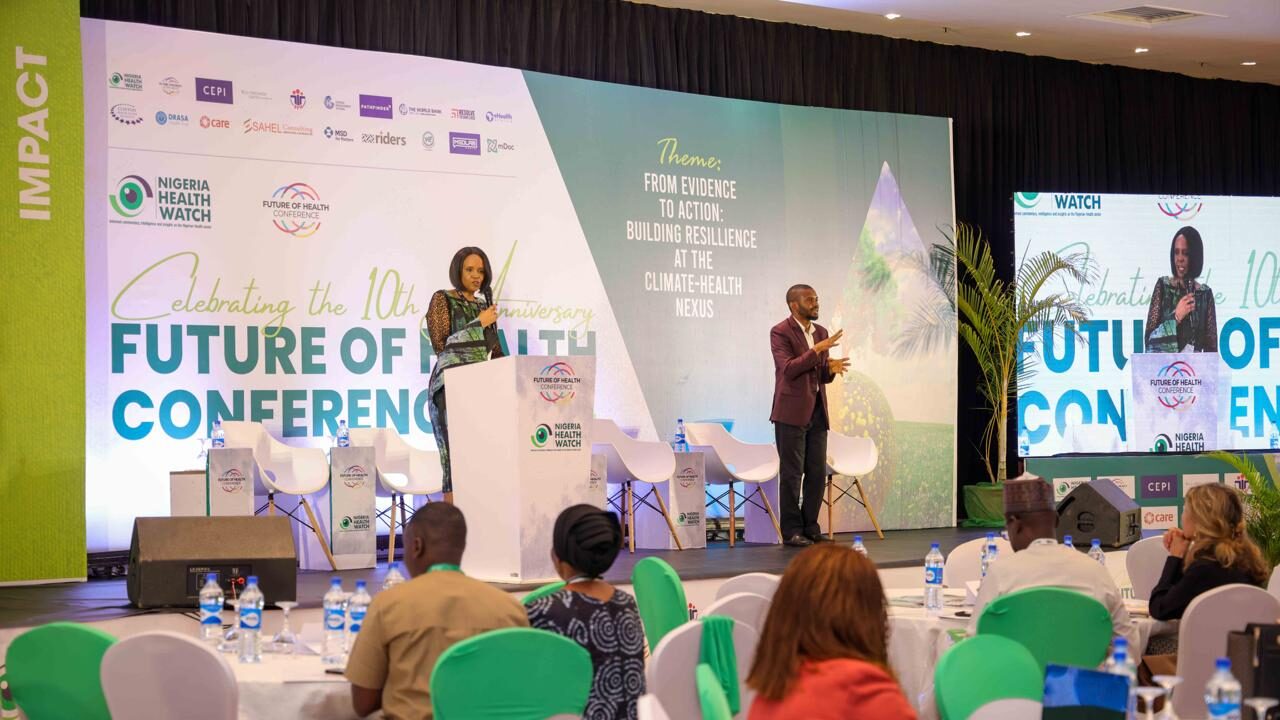
She said recent health crises such as the resurgence of diseases like diphtheria in northern Nigeria further underline the reality that climate-health nexus is more apparent than ever before. She therefore called on government, civil society, research institutions, the private sector, and the media to work collaboratively. “The question is no longer whether climate change will impact health but how much worse it will get if we don’t act swiftly and decisively. At Nigeria Health Watch, we have spotlighted solutions tackling climate-change-related challenges.”
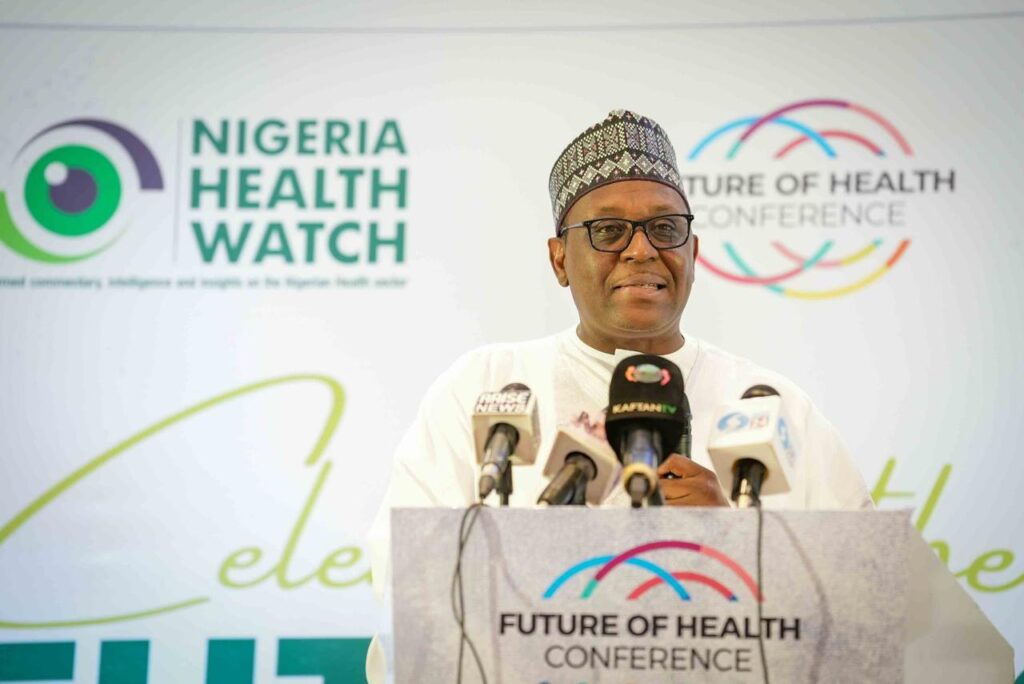
“PHC Foundation for Resilience against Climate-Health Threats” – Ali Pate
In his keynote address titled, “Addressing the Climate and Health Nexus: Building Resilience Through Collaboration and Action,” Professor Muhammad Ali Pate, Nigeria’s Coordinating Minister of Health and Social Welfare, emphasized that the challenges posed by climate change and health are not distant concerns but urgent realities affecting Nigerians today.
Pate explained how this year’s extreme weather events, including widespread floods and droughts, have led to a surge in climate-sensitive diseases, including malaria and cholera. He added that Nigeria was witnessing the emergence of new vectors, such as dengue in Sokoto and yellow fever in other regions, which underscores the pressing need for improved health systems.
“Improving health outcomes must begin with a strong emphasis on primary health care, which serves as the foundation for resilience against climate-related and other health threats. This calls for robust partnerships among government, private sector, civil society, and international organizations. Each partner brings different capabilities and resources essential for complementing one another rather than duplicating efforts, the Minister asserted”
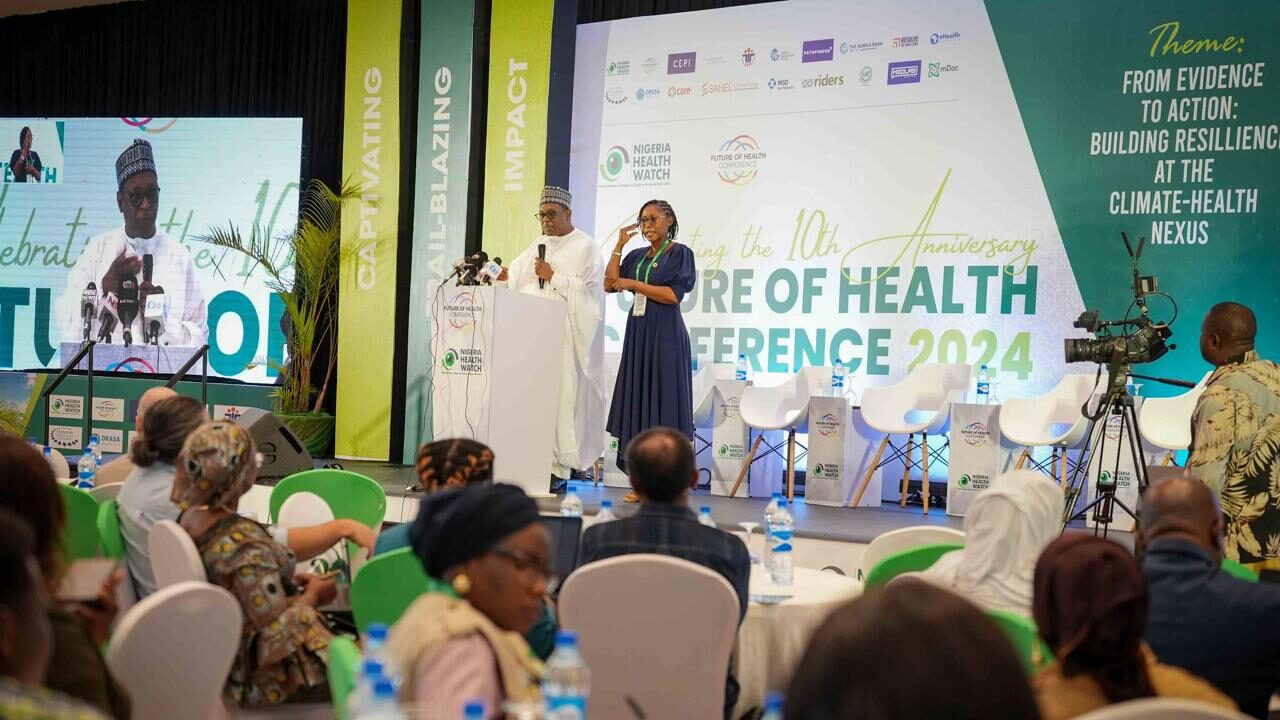
Pate asserted that “democratizing the climate conversation” is crucial, advocating for public engagement to raise awareness about climate impacts. “Engaging our citizens in this conversation is key to building resilience. Climate change will also remain with us in the future, so addressing it is not optional, but essential. While the climate challenge is global, the solutions must be localized.”
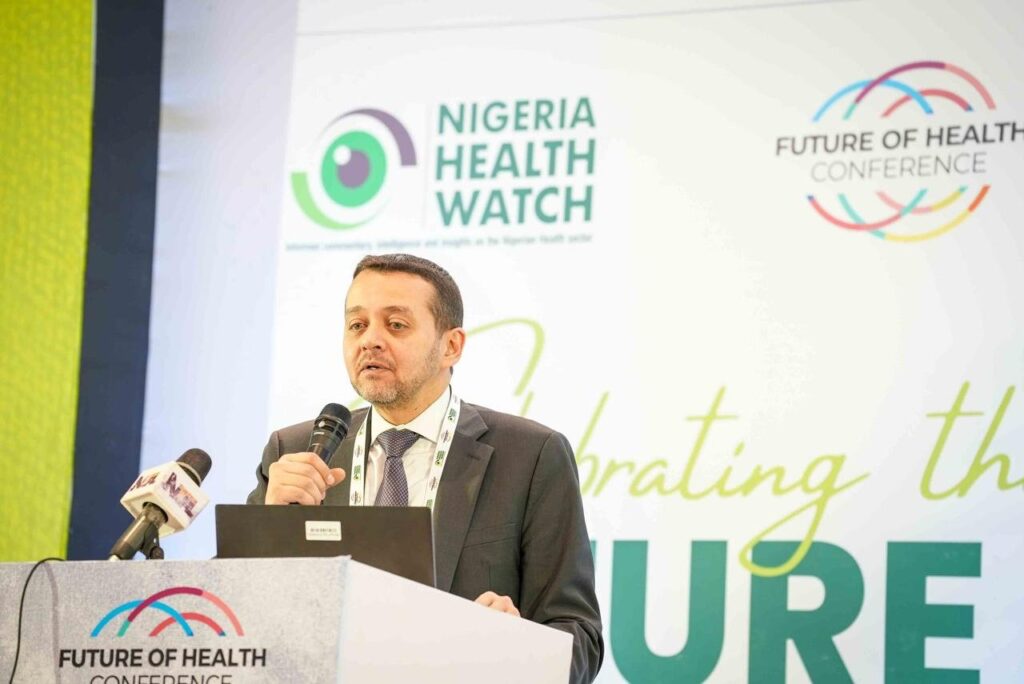
“Poor, Vulnerable Disproportionately Affected by Climate Change” – World Bank Official
In his keynote, Dr. Tamer Samah Rabie, Global Program Lead for Climate and Health at the World Bank, called on the need to prioritize climate action in health policymaking, decrying the fact that the poor and vulnerable populations who contribute very little to creating greenhouse gas emissions are disproportionately affected by climate change, daily. “It is these individuals living in precarious conditions who face the direst consequences of climate change,” he said.
Dr. Rabie therefore highlighted the urgent need for action, referencing the latest Intergovernmental Panel on Climate Change (IPCC) report, which traces the climate crisis across generations. “As I reviewed the IPCC’s Sixth Assessment Report, it became painfully clear that the climate crisis has evolved from a theoretical discussion to an immediate threat we can no longer ignore. We are now living the impacts of climate change, and every moment of inaction has severe consequences for our future.”
The World Bank official presented alarming statistics regarding the impact of climate change on poverty and health, “Our analysis at the World Bank indicates that by 2030, up to 132 million people could be thrust into extreme poverty due to climate-related factors, with health issues responsible for a significant portion of this increase. If we continue down our current path, we estimate that nearly 16 million excess deaths could occur globally by 2050, driven by climate-sensitive diseases.”
The 2024 Future of Health Conference helped foster awareness of the climate-health nexus in Nigeria, emphasizing the need for a robust health system as a panacea against climate change impacts. As the impacts of climate change on health systems become increasingly apparent in Nigeria, the conference served as a crucial platform for discussing the urgent need for integrated strategies to bolster health systems and protect vulnerable populations against the impacts of climate change.



